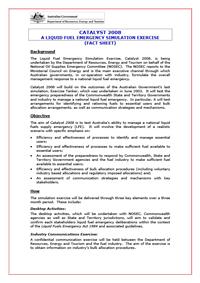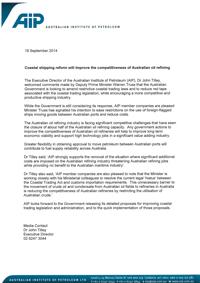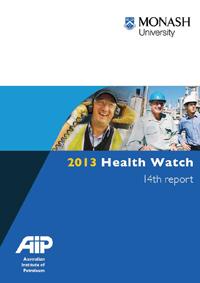Resources
Date
Description
AIP member companies provide very reliable supplies of fuel to the Australian market and: represent around 90% of primary fuel supply to the Australian market, have decades of operational experience in Australia and Asia delivering high quality fuel to customers, have major…Date
Description
Petroleum is a complex mixture of organic liquids called crude oil and natural gas, which occurs naturally in the ground and was formed millions of years ago. Crude oil varies from oilfield to oilfield in colour and composition, from a pale yellow low viscosity liquid to heavy black 'treacle'…
Date
Description
In 2008, the Department of Resources, Energy and Tourism (DRET), on behalf of NOSEC, undertook a Liquid Fuel Emergency Simulation Exercise – 'Catalyst 2008'. The aim of 'Catalyst 2008' was to test the emergency preparedness of the Commonwealth State and Territory Governments and industry to manage…Date
Description
Relying on shipping (for imports) does not increase security risks, and shipping lanes are not easily disrupted. Most countries are reliant on movements of petroleum (crude and product) within and between countries, and particularly so for Australia (in both an export and import sense).…Date
Description
Subsidising domestic alternative fuel production is not necessary for energy security The reliable supply of conventional transport fuels (petrol, diesel and jet fuel) to the Australian market is underpinned by a diversity of supply options for petroleum products from domestic refiners and…Date
Description
AIP has produced a set of basic facts on biofuels in Australia to inform consumers, commentators and other interested parties. AIP has consistently stated that there is a sustainable role for biofuels in the Australian fuels market provided biofuels are competitively priced, have a reliable supply…Date
Description
The Federal Government has introduced regulation of the quality of petrol and diesel fuel in Australia. The principal drivers of the fuel quality regulation are environmental. The adoption of emerging vehicle engine and emission control technologies is a key strategy in the management of ambient…Date
Description
The Australian Institute of Petroleum (AIP) in conjunction with petrol manufacturing and importing member companies have decided to remove dye from unleaded petrol and E10 (regular unleaded petrol with 10% ethanol added). This change will not have any impact on the fuel’s performance or on…
Date
Description
The Executive Director of the Australian Institute of Petroleum (AlP), Dr John Tilley, welcomed comments made by Deputy Prime Minister Warren Truss that the Australian Government is looking to amend restrictive coastal trading laws and to reduce red tape associated with the coastal trading…
Date
Description
AIP and its member companies welcome the very encouraging results of the industry's 14th Health Watch Report released today by Monash University. Overall, the Study clearly shows that petroleum industry employees have better health than the general Australian community and are less…